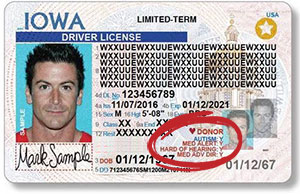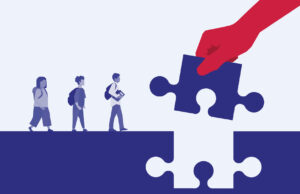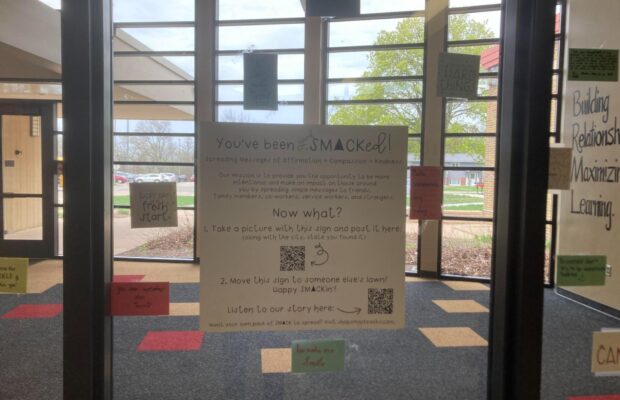New autism code will assist safety personal with communication

Those acquiring a driver’s permit recently may notice an unexpected question. “Have you been diagnosed with autism spectrum disorder?”
It started when Iowa Autistic advocate Tyler Leech got pulled over by police who were confused by his behavior. They suspected him of being under the influence and arrested him. Leech was released once they found nothing in his car, but he wanted to make sure a miscommunication like that didn’t happen to another autistic person. He told his story to a senator who then got inspired by it and fought to put autism identification on the driver’s licenses. It passed with bipartisan support.
“if someone didn’t know how to express that they are autistic or need a different way to be communicated with, they can show the license to the officer as a non-verbal way,” resource officer Lisel Barron said.
Regarding if the autism identification could lead to biased treatment, Barron said, “It could. It’s always a possibility of being judged or looked at differently. I hope not, but I can’t say for a fact, but if you think you need it, it’s better to risk bias than not be able to communicate with the officer. It might be a good form of communication with an officer who has no prior interaction with that person or autistic individuals. Things may need to be communicated differently by the officer, and it would help them understand the difficulty in communicating. “
The identification is optional, so autistic people can opt out of it if they would rather keep their identification private. “If you feel as if it doesn’t affect your driving or communication then you’re free to not have the identification, and you could tell the officer in the moment that you are autistic instead of telling them with the card, but if you do have communication issues, I would highly recommend using the identification.”
In addition to autism training, Barron said officers have received training in working with other disabled civilians too. “In the last year we all got trained in CIT (critical incident training), so we go through and met people who have all different types of needs—whether good or bad—and we go through all the different types of people and disabilities and how to pick up on these types of things and how to best serve these people.”
She said some officers have even more personal experiences to draw upon. “We have some officers with autistic children that would care a lot about serving autistic people and for whom accessibility is very personal. A majority of our officers have a good understanding and could pick up on things like autism, but there is always more to be done.”









You must be logged in to post a comment Login